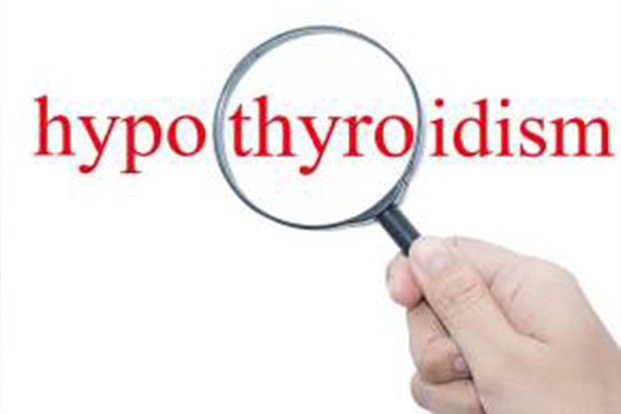Categories
- Bariatric Surgery (11)
- Black Fungus (5)
- Bone Marrow transplant (3)
- Brain Tumor Surgery Navigation Technology (20)
- Cardiac Surgery (66)
- Cardiology (97)
- Computer navigation technology for joint replacements (20)
- Covid Vaccination (17)
- Critical Care (2)
- Dental (19)
- Dermatology (31)
- Dialysis Support Group - “UTSAAH” (11)
- Dietitian (33)
- Emergency Medicine (4)
- Emotional Health (11)
- Endocrinology (33)
- ENT (20)
- Gastroenterology and GI Surgery (53)
- General and Laparoscopic Surgery (21)
- General Surgery (4)
- Gynecology & Obstetrics (183)
- Hematology (20)
- Internal Medicine (294)
- Kidney Transplant (50)
- Kidney Transplantation (20)
- Lung Cancer (8)
- Minimal Invasive Surgery (1)
- Mother & Child (20)
- mucormycosis (5)
- Nephrology (61)
- Neurology (147)
- Neurosurgery (68)
- Nutrition and Dietetics (107)
- Omicron Variant (1)
- Oncology (288)
- Ophthalmology (10)
- Orthopaedics & Joint Replacement (86)
- Paediatrics (59)
- Pediatric Nephrology (3)
- Physiotherapy (5)
- Plastic & Reconstructive Surgery (6)
- Psychiatry and Psychology (90)
- Psychologist (28)
- Pulmonology (72)
- Rheumatology (13)
- Spine Services (21)
- Transradial Angioplasty (16)
- Urology (84)
Query Form
Posted on Apr 19, 2022
Types of inherited Metabolic Disorders
A metabolic disorder can happen when abnormal chemical reactions in the body alter the normal metabolic process. It can also be defined as inherited single gene anomaly, most of which are autosomal recessive. These kinds of disorders can be a result of genetics, a deficiency in a certain hormone or enzyme, consuming too much of certain foods, or a number of other factors. There are hundreds of genetic metabolic disorders caused by mutations in single genes. These mutations can be passed down through generations of families. It is hence imperative to be aware of the different types of genetic disorders so that one can take steps to detect any abnormality at the right time and also take steps to correct the same.

Common Metabolic Disorders:
Lysosomal storage disorder
Spaces within cells which break down unwanted products of metabolism are called lysosomes. Several enzyme deficiencies within lysosomes may lead to creation of toxic elements resulting in metabolic disorders comprising-
- Hurler Syndrome – It is also known as an abnormal structure of bone and delay in growth.
- Niemann-Pick Disease– It is a disease wherein which babies suffer from feeding difficulty, nerve damage and develops enlargement of the liver.
- Tay-Sachs Disease– it is a developing weakness within a months old baby, developing to severe damage of nerve. In such cases, a child usually does not live beyond the age of 5 years.
- Gaucher Disease– This disease involves, enlarged liver, bone pain, and low platelet counts, in children or in adults.
- Fabry Disease– This disease affects males only. They comprise of pain in the extremities during childhood, with heart and kidney disease and stroke in adulthood.
- Krabbe Disease– It refers to progressive damage of nerve, delayed development in young children and occasional adverse effect on adults.
Galactosemia
Impaired break down of sugar galactose results in vomiting, jaundice, and enlargement of liver post breast feeding or formula feeding to a newborn.
Maple syrup urine disease
In this disease, deficiency of BCKD enzyme results in the creation of amino acids in our body. The result is damaged nerves and the smell of urine like that of syrup.
Phenylketonuria or PKU
Deficiency of enzyme known as PAH leads to the high amount of phenylalanine in our blood. The results in mental retardation if not recognized early.
Glycogen Storage Diseases
Problem with storage of sugar causes low levels of blood sugar, pain in muscles and weakness.
Mitochondrial Disorders
These are related to malfunctioning within mitochondria which is the powerhouse of cells. This condition results in damage of muscles.
Friedreich Ataxia
Problems relevant to frataxin protein causes damage in the nerves and often results in heart problems. It can also lead to an inability to walk from young adulthood.
Peroxisomal Disorders
Like lysosomes, the peroxisomes are small spaces that are full of enzymes within cells. Poor function of enzymes within peroxisomes can result in the creation of waste products of metabolism. These disorders include-
- Zellweger Syndrome: They are referred to as abnormal features of face, damaged nerves in infants and enlarged liver
- Adrenoleukodystrophy: In this disorder symptoms of damaged nerves can occur within childhood or in early adulthood
Metal Metabolism Disorders
Trace metals’ levels in the blood are directed by special proteins. Inherited metabolic disorders may lead to protein malfunction & toxic buildup of metal within our body:-
- Wilson disease – It refers to an accumulation of toxic copper levels within brain, liver and other organs.
- Hemochromatosis – It refers to a condition wherein which intestines absorb surplus iron that builds up within liver, joints, heart, and pancreas, thus causing damage.
Organic Acidemias
Propionic academia and methylmalonic academia
Urea Cycle Disorders
Ornithine transcarbamylase deficiency &citrullinemia



